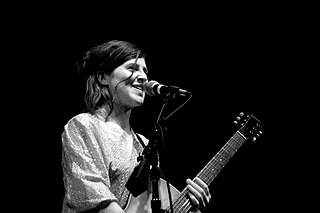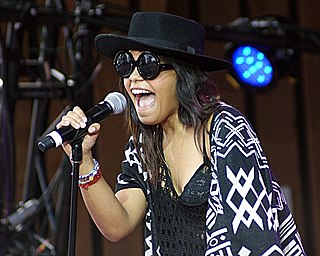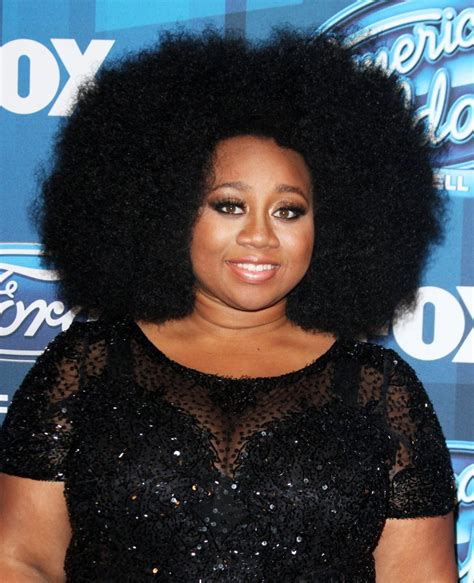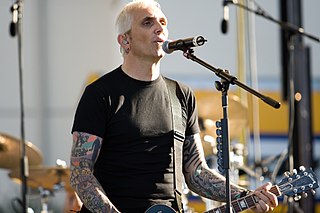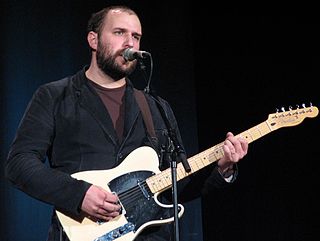A Quote by Mirah
I think that I have come at it backwards in a way because a lot of what I'm doing as a songwriter is not incredibly intentional. There's a moment that happens which creates the song or the actual idea for a song, and then I'm like, "Oh, it's this kind of song."
Related Quotes
I played a couple of ideas and then had this unusual texture underneath which was like this little granulated kind of pipe organ almost like a scratchy record which he started [inaudible] brilliantly. "Oh I love that song." And when things go fine, it's good. So he started loving that song and that song was used quite a lot in the movie which is very granulated stuff on the guitar.
When you sit down and write a song, you kind of have the idea for the song, and you sit there at the piano and you kinda just write it. And then of course later there's some dinking around with it and changing some stuff. But there's this thing that happens when the song first comes out, that sort of magic when it first comes out of the ether, and you can't even really explain where it comes from. That happens so much with music, and people understand that with music. But I really think that a lot of movie and TV should be the same way.
I'm no longer beholden to the sacredness of the recorded song as some kind of ultimate standard by which every performance of the song is measured. I like to diversify, that there are multiple versions of every song. And the songs incorporate a lot of improvisation, and an element of chance, and I think that's exciting. There's no one true formulation of a song, they have various manifestations depending on the space we're in. I like that.
Like the Birth Of Venus, the song [Yello "oh, Yeah"] denotes the birth of the bro. The song just reminds me of bros looking out over lowered Ray-Bans. It birthed a negative sexual revolution. I was going to a lot of bondage clubs at the time and they did play this song. The song I associate more is that horrible Enigma song with the Gregorian chant. There's something good buried in that song and I might not hate it as much if I hadn't been a sex worker.
I feel like this song [Yello, "Oh Yeah"] was probably done in a couple of minutes in a studio. There was probably no thought behind it; they were just playing with some samples and threw it together. I feel like there's no dream behind the song. Usually there's a dream or some kind of passion attached to a song. This song feels very empty. It made a lot of money for the songwriters but at the expense of culture.
When writing I just go with the song. I go with the song and try to tell the story. So the story may be "Wonderful Baby", which is a little song. Or it might be a gentle song, "Empty Chairs". Or it might be a rock and roll song like "Prime Time" or "Run, Diana, Run", or "American Pie". I don't know where it's gonna go. I don't have any idea what I'm doing. I just do it. I just keep doing it. I keep taking adva
But once you've made a song and you put it out there, you don't own it anymore. The public own it. It's their song. It might be their song that they wake up to, or their song they have a shower to, or their song that they drive home to or their song they cry to, scream to, have babies to, have weddings to - like, it isn't your song anymore.
On past records I usually did start with a story or an idea for a song and then write around it, but on Achilles' Heel I would just start writing and try to let the song and my sub-conscience determine the direction. which is a goofy way of saying I tried not to decide before hand what the song and or the characters would do and be like.
[A]s soon as you try and take a song from your mind into piano and voice and into the real world, something gets lost and it's like a moment where, in that moment you forget how it was and it's this new way. And then when you make a record, even those ideas that you had, then those get all turned and changed. So in the end, I think, it just becomes it's own thing and really I think a song could be recorded a million different ways and so what my records are, it just happened like that, but it's not like, this is how I planned it from the very beginning because I have no idea, I can't remember.
